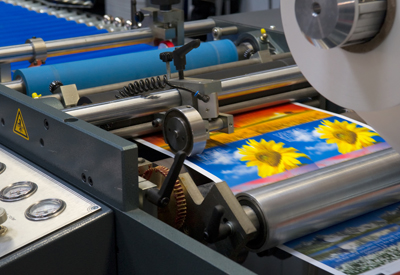Regulatory Information for Printers
 Printers must comply with multiple environmental, health, and safety regulations. On this page, we provide a brief introduction to regulatory information and requirements as well as some fact sheets from the Minnesota Pollution Control Agency (MPCA). We highlight environmental areas of concern to the majority of small and medium-sized screenprinters in Minnesota; however, additional regulatory requirements may also apply.
Printers must comply with multiple environmental, health, and safety regulations. On this page, we provide a brief introduction to regulatory information and requirements as well as some fact sheets from the Minnesota Pollution Control Agency (MPCA). We highlight environmental areas of concern to the majority of small and medium-sized screenprinters in Minnesota; however, additional regulatory requirements may also apply.
What can be sewered?
- Process wastewater cannot go to a septic system without prior approval.
- Generally, photoprocessing chemicals can be sewered, provided the silver has been removed from the spent fixer.
- Often the wastewater associated with screen reclamation can be sewered. This tends to be the case with wastewater where the solids (ink and screen emulsion) have been filtered out prior to discharge. Check with your sewer authority first. In the Twin Cities metropolitan area, contact the Metropolitan Council Environmental Services (MCES) at 651.602.4704.
How do I manage solvent and ink waste?
- Generally, this type of waste must be managed as a hazardous waste. Requirements exist for storage, labeling, tracking, training, and reporting, depending on the total quality of hazardous waste produced. A license may be required. In the Twin Cities area, contact your county hazardous waste office, listed below. In Greater Minnesota, contact your regional MPCA office, also listed below.
- Have you checked for lead, cadmium, mercury, or hexavalent chromium in your inks? If they are present, ask your supplier to provide inks that do not contain these metals.
What requirements exist for rags and wipes?
- Requirements will depend on what solvents you use and what ink contaminants exist. Launderable towels where solvent has been wrung out can go to a permitted commercial laundry facility
- For more information, call your county or MPCA office as suggested above.
How do I know if I need an air permit?
- If your company uses less than 200 gallons of volatile organic compounds (VOCs) a year, an air permit is likely not required. Check your material safety data sheets (MSDS) and ask your supplier for assistance. Your company needs to keep records of quantities used each month.
- If you use more than the above quantity, you can get assistance with possible permit requirements by calling the Small Business Environmental Assistance Program at the MPCA at 651-282-6143 or 1-800-657-3938.
How do I ensure proper disposal of empty containers, fluorescent bulbs, oil waste?
- Contact your county or the MPCA
More complete information about these topics or other environmental requirements that may apply to your company can be obtained by calling the MPCA or your county.
The Environmental Guide for Small Businesses in Minnesota provides information to help small companies with environmental requirements.
Contact Information
Metropolitan Counties Environmental Offices
- Anoka County 612-422-7093
- Carver County 612-361-1800
- Dakota County 612-891-7011
- Hennepin County 612-348-8100
- Ramsey County 651-773-4466
- Scott County 612-496-8177
- Washington County 651-430-6655
Minnesota Pollution Control Agency (MPCA)
- Small Business Environmental Assistance Program (statewide) 800-657-3938 or 651-282-6143
- Brainerd 218-828-2492
- Detroit Lakes 218-847-1519
- Duluth 218-723-4660
- Mankato 507-389-6713
- Marshall 507-537-7146
- Rochester 507-285-7343
MPCA Fact Sheets
- Air Quality Permit Rules [PDF 152KB]. This includes source categories subject to New Source Performance Standards and lists hazardous air pollutants.
- VSQG Collection Program Requirements for Generators [PDF 180KB]. This fact sheet explains the Very Small Quantity Generator (VSQG) program and rules.
- Evaluating Paint and Ink Wastes [PDF 63KB]. This fact sheet can help you determine if your paint or ink waste is hazardous.
- Towels, Wipes and Sorbents [PDF 57KB]. Learn more about management options for shop towels.